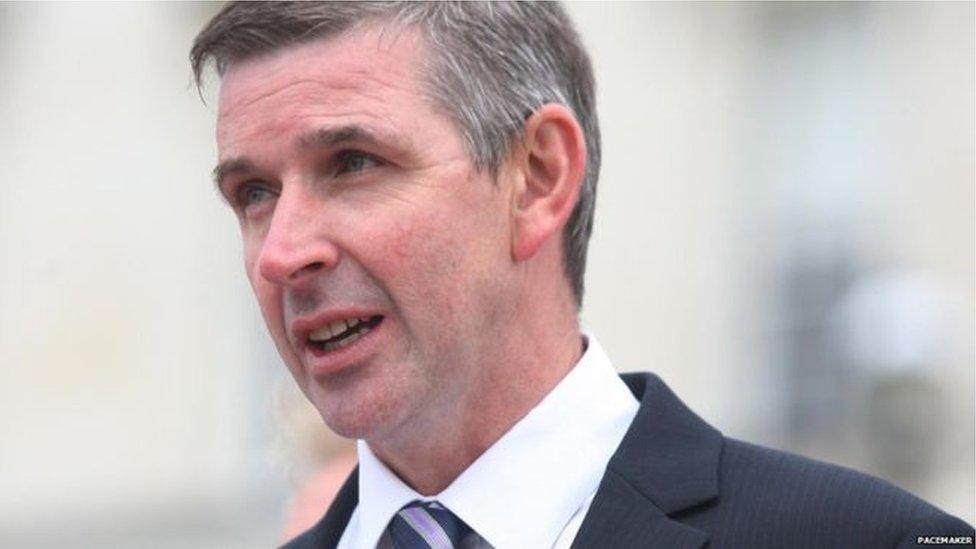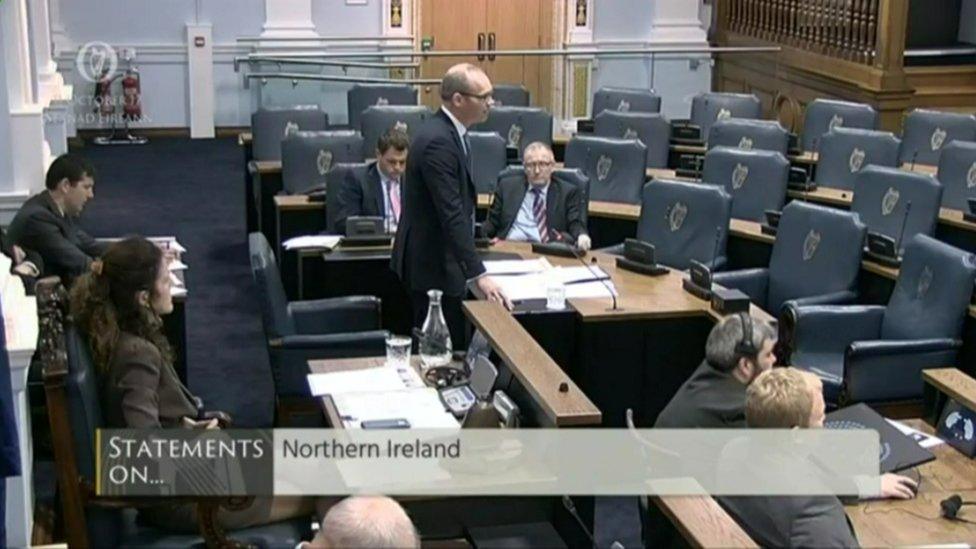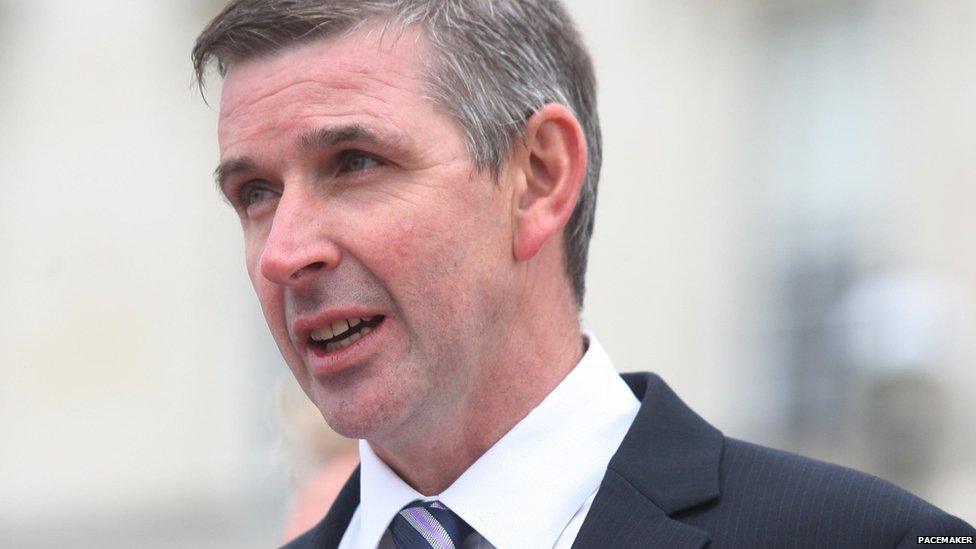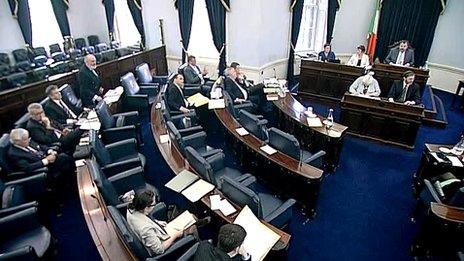Sinn Féin votes help unionist into Irish senate
- Published
First unionist to be elected by the Senate
County Armagh farmer Ian Marshall has made a little bit of political history by becoming the first unionist elected by the Seanad (Irish senate).
While there have been other unionist senators, he is the first elected by members of both the senate and Dáil.
His achievement has been seen as indicative of "a wind of change" in southern politics.
But that wind feels like a strengthening gale as Mr Marshall's election was supported by Sinn Féin.
Mr Marshall, who was elected on the fourth count, said the result is "hugely significant".

Ian Marshall has been elected to the Irish Senate
"I think the development this morning has indicated that actually there's a change of thinking in some of this - that the future for everyone is about collaboration," he said.
The former president of the Ulster Farmers' Union is not the first northern Protestant to become a member of the Seanad.
He is, however, the first to have entered office on the back of a vote by all his fellow Senators and the 158 'Deputies' of Ireland's lower house (Dáil Éireann).
Although it was the Taoiseach (Irish Prime Minister), Leo Varadkar, who nominated him, Mr Marshall will sit as an Independent.
He has never been a member of a political party.
"I was hugely honoured when the taoiseach asked me if I would allow my name to go forward," he said. "I think that, in itself, sends out a message that there is a real appetite to demonstrate collaboration and co-operation."
Spirit of co-operation
Mr Marshall's co-operation with Sinn Féin perhaps raised the most eyebrows.
In a statement confirming that all of its party members had been instructed to vote for Mr Marshall, Sinn Féin President Mary Lou McDonald said: "Ian is a unionist. I am an Irish republican. As I have stated repeatedly, the Ireland I want to see is one where one can comfortably be Irish or British, both or neither.
"I believe Ian can bring a new and interesting voice to the discussion surrounding a new Ireland."
Focus on Brexit
More recently, Mr Marshall has been best known for his outspoken views opposing Brexit.
Ms McDonald said she had met him several times recently and had been impressed by his appreciation of the potential impact Brexit could have on the island of Ireland, north and south.

A short history of the Seanad:

The Seanad is viewed as a watchdog that can hold the government to account
Seanad Éireann (Irish Senate) was established in 1922, just months after the foundation of what was then known as the Irish Free State.
It powers and functions were originally modelled on the British House of Lords, providing a bicameral system of government where the upper house scrutinises and amends bills that originate mainly in the lower house.
From its inception, the Seanad aimed to give a voice to minority communities - a platform to diverse political interests that were not widely represented in the Irish parliament's lower house, the Dáil.
Despite representing an overwhelmingly Catholic population, Protestant senators made up one third of the membership of the very first Seanad, counting the poet William Butler Yeats among their number.
In the nine decades that followed, few northern Protestants took up the offer of a Seanad seat, although there were some notable exceptions.
In 2013, the Fine Gael-Labour coalition government tried to abolish the Seanad as part of its austerity programme, arguing it cost too much to run.
However, in an embarrassing defeat for Enda Kenny's government, the Irish electorate rejected the referendum proposal and voted to keep the Seanad by a narrow majority of 52%.

For his part, Mr Marshall played down the importance of his own view and said Brexit was now something we "simply have to find a solution to".
"The industry that I represent, which is the agri-food industry in Northern Ireland, at the moment is hugely disadvantaged and is under significant threat by virtue of the potential of any hard border," he said.
"As much as I'm not confident that we have enough done yet, I believe we must get solutions to problems and I think it's going to take some strong leadership to actually move the conversations on."
Mr Marshall has scaled back his farming activities in recent years and is currently working with the Institute of Global Food Security based at Queen's University Belfast.
- Published24 April 2018

- Published5 October 2013
